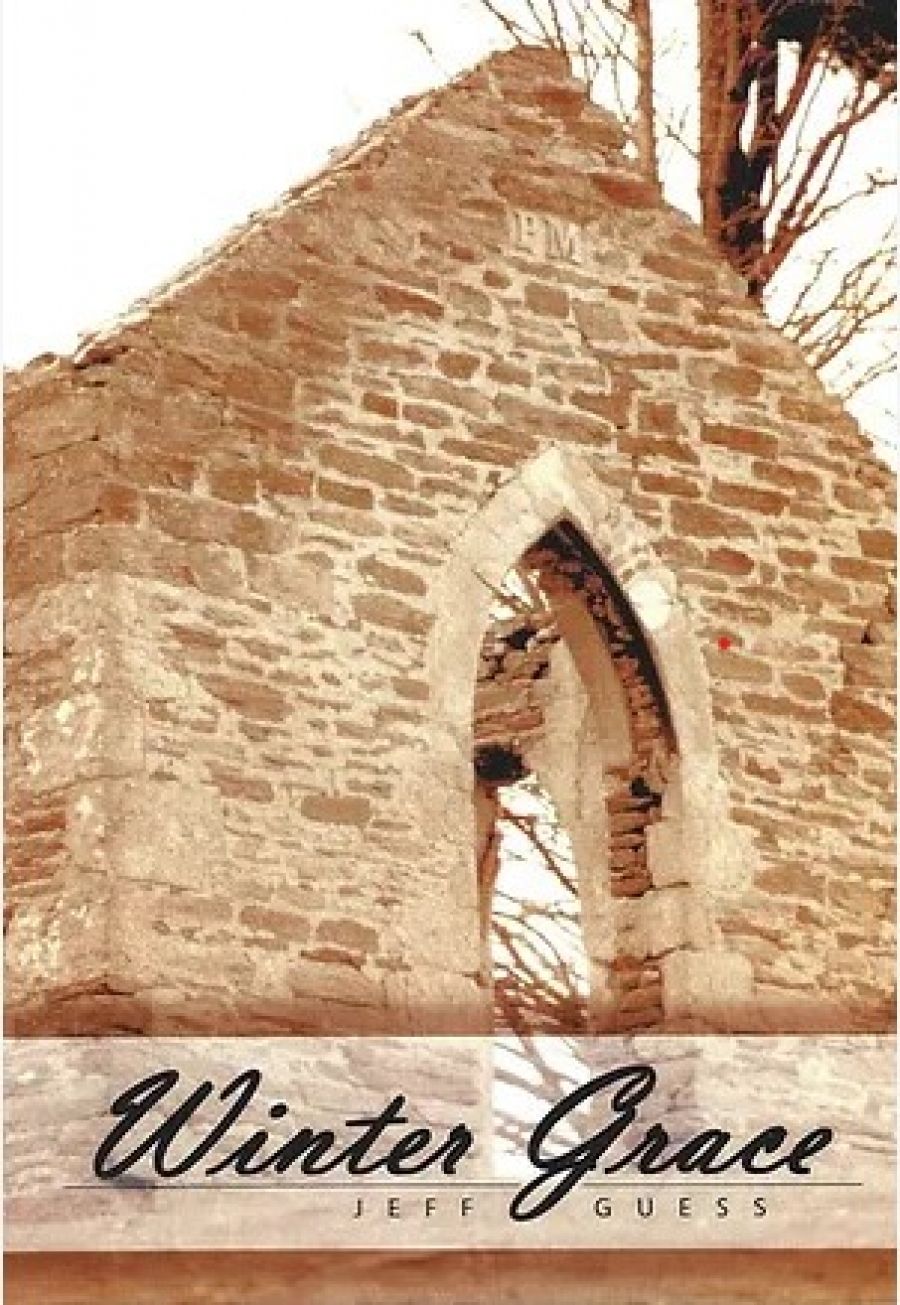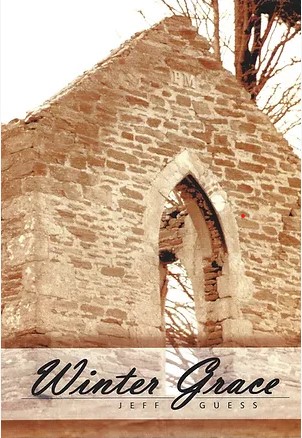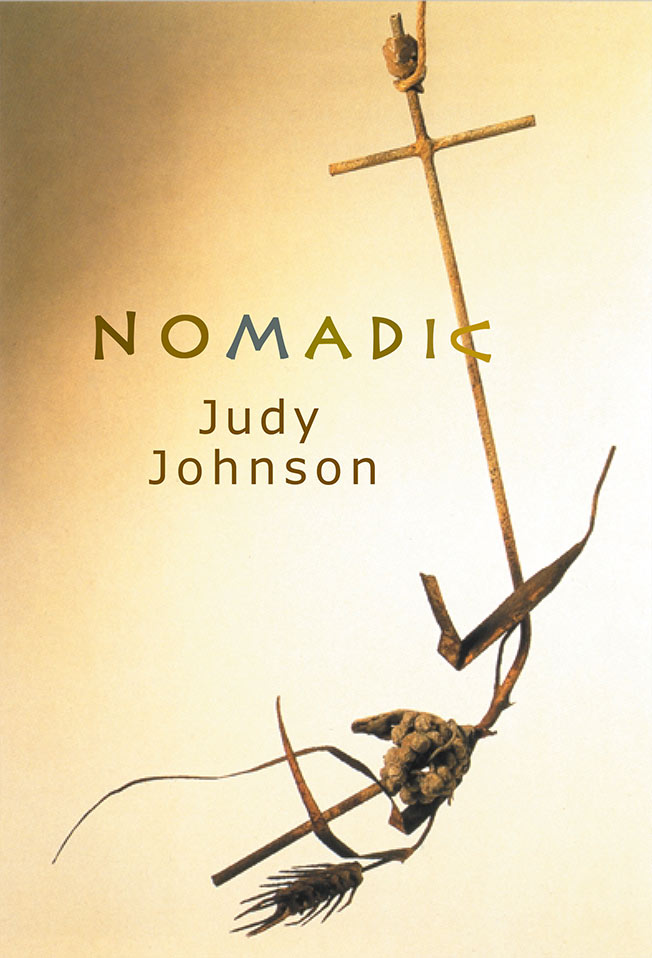
- Free Article: No
- Contents Category: Poetry
- Review Article: Yes
- Article Title: Beyond Matter
- Online Only: No
- Custom Highlight Text:
In these lines, taken from ‘The African Spider Cures’, Judy Johnson might almost be describing her poetics. Nomadic, Johnson’s second poetry collection, consists of well-made poems that combine objective views of the world with snippets from the poet’s personal life. In the title poem, which centres around a recent separation, Johnson compares her experience of finding an illicit love letter with a Bedouin shepherd-boy’s chance discovery of the Dead Sea Scrolls: ‘There is no connection between the two events,’ she writes, ‘[…] Yet I encounter coincidence.’
- Book 1 Title: Winter Grace
- Book 1 Biblio: Five Islands Press, $18.95 pb, 84 pp
- Book 1 Cover Small (400 x 600):

- Book 1 Cover (800 x 1200):

- Book 2 Title: Nomadic
- Book 2 Biblio: Black Pepper, $23.95 pb, 111 pp
- Book 2 Cover Small (400 x 600):

- Book 2 Cover (800 x 1200):

- Book 3 Title: Taking Shape
- Book 3 Biblio: Five Islands Press, $18.95 pb, 84 pp
Throughout the book, Johnson brings together mythology, family history, travel scenes and childhood memories; but, whatever the subject, there is always a strong emotional element in her writing. It is particularly evident in Johnson’s moving conclusion to an elegy for her mother, who ‘[l]eaves nothing / to show she had ever flown except, // in the broken room, still attached, // our long tail of sorrow’.
One of the major strengths of this poetry is its ability to surprise and unsettle the reader with ingenious imagery or phrasing. While Johnson has an occasional tendency to indulge in overly elaborate explication (‘The African Spider Cures’, for example, uses up a lot of space, only to make a fairly lame point about the importance of keeping one’s grievances in perspective), many of her lines bear witness to an admirable restraint. Consider ‘My limbs by association climb the walls’ (‘Possibility’) and the following account, from ‘Girl on a Paling Fence’, of ‘two striped feet with their strapped-in cargo of toes’. Indeed, it comes as little surprise to find that Johnson has been inspired to imitate the poetry of two early Chinese dynasties, the Liang and the Chin. The best of Nomadic owes much of its success to the constraining influence of form. For an imagination as restless and enquiring as Johnson’s, there could be no better foil.
In his sixth collection, Taking Shape, the Adelaide poet Steve Evans explores various aspects of corporeity. Evans shows himself to be a keen observer of how the body operates – one poem describes the individual workings of thirteen important bones – and he is especially interested in the effects of ageing and disease, referring more than once to our sure-footed progress to a condition ‘beyond matter’.
Appropriately, the book’s opening poems deal with the progenitive potential of sex; it has to be said, however, that on these occasions Evans can sometimes tell us more than we might care to know. (I, for one, should prefer not to have to read lines like ‘you approach me / and cup my balls / doing it slowly’.) From here, after poems about leukaemia, migraine (‘a distraction of fireflies’) and the injuries that result from a car accident, Evans goes on to address the legacies of death, recounting, among other things, the familiar experience of sorting through a deceased person’s belongings: ‘who was this man, he wondered / whose strewn follies and property / he gradually reduced to boxes and bags? / who it was lived in this jackdaw nest?’ (‘Cleaning Up’). More ambitious and more effective than this is a poem called ‘The Burning’, in which Evans contemplates his own demise in the context of Christ’s crucifixion, burial and resurrection. For the most enjoyable writing here, it is hard to go past Evans’s ‘Drifting’, whose sounds and rhythms restore music to a book that tends to suffer from an unvaryingly flat tone:
in sleep
her long body is a dinghy
a boat of apples
cast up beside me
brimful of sweet smells
On the evidence of Winter Grace, Jeff Guess appears to have the kind of imagination that requires an ‘object’ in order to take fire. Guess has written poems in response to paintings (by Margaret Olley, Walter Withers and others), ‘iceberg’ roses, a thirteenth-century Japanese carving, and the lives of famous explorers, poets and statesmen. But most of all, he is drawn to anything old, to people and things that belong to the past.
Neglected country towns provide Guess with plenty of material. As he writes in ‘Fishing Village’: ‘Her shop is a clean crisp map / of a kind of world that doesn’t exist / any more: outside seagulls scavenge / along what’s left of the beach.’ Other poems have titles such as ‘Old Woman at a Window’, ‘A Priest Retires’, ‘The Last Anzac’, ‘Ruined Chapel’ and so on. With such an approach there is nothing intrinsically wrong – one need only think of valuable poems about rural stagnation by Goldsmith or Les Murray, for instance – but, unfortunately, in Guess’s case the focus on these subjects results in work that seems unduly ‘poetical’. Having said this, his writing is always well crafted, and the sentiments it expresses are compassionate and keenly felt.


Comments powered by CComment